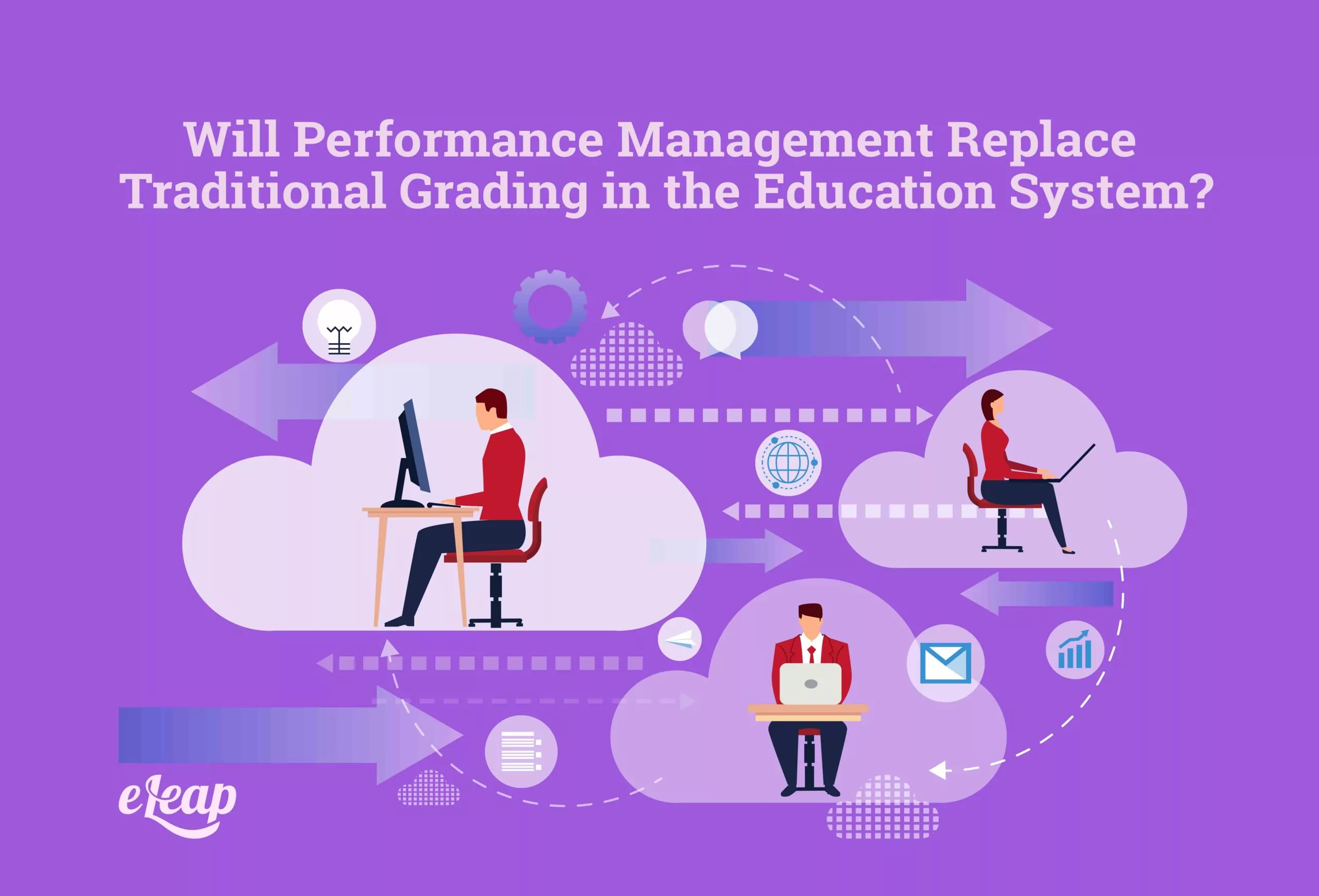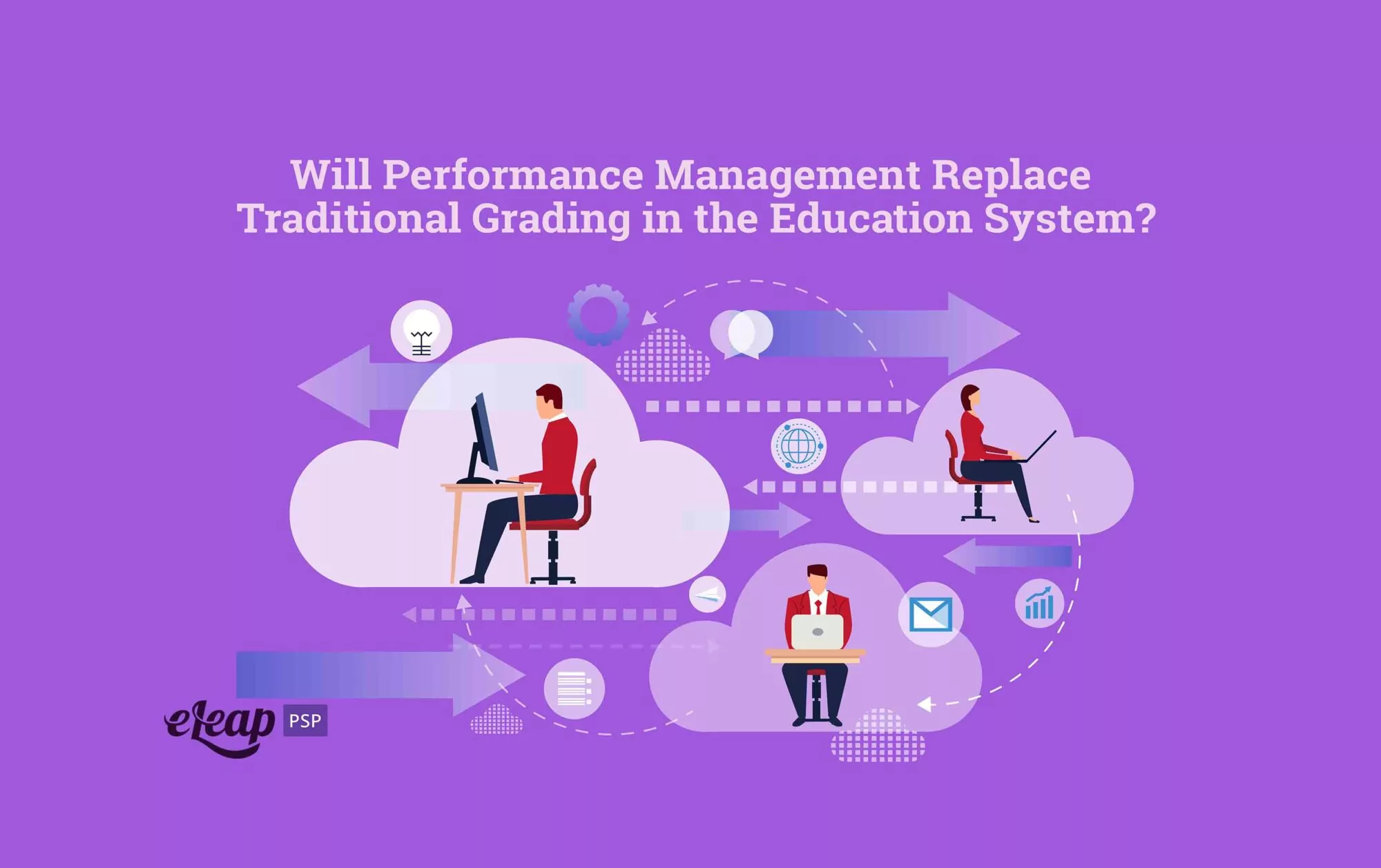Will Performance Management Replace Traditional Grading in the Education System?

Teachers and educators everywhere have the same goal for their students: to help them learn the things that they need to not only survive but thrive, in the world as adults. Part of that should come in being monitored and held accountable in the same way that adults are on the job—forget A’s, B’s, and C’s because performance scoring is offering a new way for schools to customize learning solutions for students to elevate learning and take education to an entirely new level.
Historically, educators and even parents would find themselves missing the mark with their students, focusing too much on things like hard grades and the general classroom approach that is not nearly as effective as customized learning. It’s about going beyond the limits of academic grading and scoring to take a holistic look at students’ readiness for the educational and work-related challenges that come after high school.

The Value of Performance Scoring
A tenant of performance management that is typically aimed at employees, performance scoring is offering a new approach for the education systems around the world. This tactic, combined with modern LMS platforms and eLearning resources will allow educators to notice and react to challenges or obstacles in the moment, instead of after the fact.
Think of it as a 50-question test. In the traditional form, a student would be presented with the test, tasked with answering all 50 predetermined questions, and then would be graded on their answers. While effective to an extent, it only allows for a reactive approach to education—you will see where people aren’t measuring up and where you may need to go back and spend a little more time on your lessons. This is all well and good, but what if you could stop people from missing questions in the first place? Or better yet, get a more accurate and personalized assessment of their abilities?
If you utilize a modern eLearning platform with performance scoring and performance-based question generation, you’ll get exactly that.
Performance Scoring for Students and School Systems Alike
Of course, school systems should note that performance scoring isn’t just for students. This model can be used for the entire school system, helping elevate both students and staff, ensuring that teachers know what students need without having to pry information from their disengaged brains. Using this data science to address challenges that are presented in real-time will allow students to build their strengths and help educational facilities and teachers empower students for a life outside of school.
This option also allows schools to identify students, teachers, and departments that may be struggling or lacking resources, creating the opportunity to make improvements to the system as much as to the students. Working collectively, educators and administrators can utilize performance scoring models and modern eLearning resources to deliver a better educational experience that prepares students for the “real world” and doesn’t just make sure that they can hit the marks on multiple-choice tests and deliver well-written essays.
Collaborative Learning is the Future
Performance scoring in education is not a new thing. Many educational systems and states have been using performance scoring models to rank schools, including primary, secondary, and post-secondary institutions, for decades. Schools are sometimes ranked by “grade” just to create a similar feel, but ultimately that grade is a combination of several different aspects of performance and educational aptitude, and many educators feel that this is also the way that students should be graded, or judged, for their efforts in the classroom (and beyond).
With performance scoring, educators will have access to real-time results and personalized insights that allow them to see which students are struggling and which ones are doing exceptionally well. It can even identify difficult areas for some students and highlight the opportunity to pair up high performers with those who need a little more assistance. Then, it’s not just one teacher trying to educate a group of students, but students working together to educate themselves.
This is far more accurate as an example of life than the traditional education and grading system. You’re not given grades and rankings at work—or if you are, they are among the least of the things that matter in your role. Rather, employers will be far more focused on how you work as a team, what kind of goals you can achieve for the business with your abilities, and how you can collaborate with those who have different skills to create a cohesive strategy and foster bigger and better success.
It Starts in the Classroom
Data science and technology are changing the way that the modern school system sees education and empowering students. They are allowing both schools and individual educators the opportunity to create an environment where people work better together than apart. What does this sound like? That’s right—it sounds like a tenet of a company focused on teamwork and collaboration for the sake of achieving the strategic goals of the organization.
Therefore, why shouldn’t we consider changing the way that students learn, and more importantly, the way that we monitor and “score” that learning ability? Taking a proactive approach not only ensures that fewer students get left behind, but it ensures that people have a better grasp on what the future holds because their educational performance management modeled the tools and methods used in the professional world.
The right performance management system can be employed in modern schools and universities to revolutionize the way students are educated and tested on their abilities. It can also allow the introduction of a modern LMS to create virtual learning opportunities that are personalized to the needs of students instead of taking an all-for-one approach like traditional classroom learning.
According to the experts, the definitions of “success” for students could become much more actionable and holistic if they also accounted for the knowledge and skills that students need to prepare for the working world and other challenges after leaving the traditional school setting.
The eLeaP continuous performance management system provides organizations with powerful options to attract and retain high caliber team members.